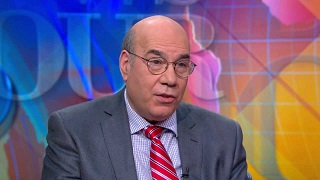De Amerikaanse schrijver, dichter en essayist Jay Parini werd geboren in Pittston op 2 april 1948. Parini groeide op in Pennsylvania en studeerde geschiedenis en Engelse letterkunde aan het Lafayette College en de Universiteit van St Andrews. Later doceerde hij Engels en creatief schrijven aan Dartmouth College en Middlebury College. Parini heeft acht romans geschreven, waarvan er veel gaan over het leven van literaire iconen, en daarnaast verhalen vanuit zijn eigen persoonlijke leven. Zijn internationale bestseller “The Last Station” uit 1990 gaat over de laatste maanden van Leo Tolstoy. Het werd vertaald in meer dan dertig talen en verfilmd met in de hoofdrol Helen Mirren, Christopher Plummer, James McAvoy en Paul Giamatti. De film werd uitgebracht in december 2009. Parini’s historische roman ”Benjamin’s Crossing” uit 1997 gaat over de Joodse criticus en filosoof Walter Benjamin, en zijn vlucht over de Pyreneeën uit bezet Frankrijk naar Spanje. In “The Passages van H.M. (2011) is de schrijver Herman Melville het onderwerp. Voor de biografie “Robert Frost: A Life” ontving Parini in 2000 de Chicago Tribune Heartland-prijs voor het beste non-fictie boek van het jaar. Hij schreef ook opmerkelijk biografieën over John Steinbeck, William Faulkner, Jezus en Gore Vidal, met wie hij lang bevriend was. Hij heeft non-fictie boeken gepubliceerd over uiteenlopende onderwerpen, zoals “Theodore Roethke, an American Romantic” (1980), “Some Necessary Angels: Essays on Writing and Politics” (1997), “The Art of Teaching” (2005), “Why Poetry Matters” (2008), en “Promised Land: Thirteen Books That Changed America” (2008). Zijn gedichten zijn verschenen in een breed scala van tijdschriften, waaronder The Atlantic, The New Yorker en Poetry. Verder publiceerde hij de dichtbundels “Singing in Time” (1972), “Anthracite Country” (1982), “Town Life” (1988), “House of Days” (1998), “The Art of Subtraction: New and Selected Poems” (2005), en “New and Collected Poems: 1975 – 2015 “(2015).
Anthracite Country
The culm dump burns all night,
unnaturally blue, and well below heaven.
It smolders like moments almost forgotten,
the time when you said what you meant
too plainly and mined your chance of love.
Refusing to dwindle, fed from within
like men rejected for nothing specific,
it lingers at the edge of town, unwatched
by anyone living near. The smell now
passes for nature. It would be missed.
Wound of the earth, offal of an age
when pitch-faced men dug marrow
from the Epine of a speechless land,
it resists a healing.
Its luminous hump cries comfortable pain.
The Lake House In Autumn
A silence in the house at summer’s wake:
the last leaves (all in one night’s wind,
the mice are eaten, and the cats begin
a rumbling sleep. There’s nothing much at stake.
It’s not quite cold enough to stoke
the furnace, and the neighbors never seem to mind
if leaves are raked. I’m staring through a blind
at less and less beside a cooling lake.
I keep forgetting that this absence, too,
must be imagined. I cannot just frown
or fill the vacancy with stately me.
The mind is darker, deeper than a windblown
lake that tries to mirror every hue
of feeling as the dusky season takes me down.
After The Terror
Everything has changed, though nothing has.
They’ve changed the locks on almost every door,
and windows have been bolted just in case.
It’s business as usual, someone says.
Is anybody left to mind the store?
Everything has changed, though nothing has.
The same old buildings huddle in the haze,
with faces at the windows, floor by floor,
the windows they have bolted just in case.
No cause for panic, they maintain, because
the streets go places they have been before.
Everything has changed, though nothing has.
We’re still a country that is ruled by laws.
The system’s working, and it’s quite a bore
that windows have been bolted just in case.
Believe in victory and all that jazz.
Believe we’re better off, that less is more.
Everything has changed, though nothing has.
The windows have been bolted just in case.

Jay Parini (Pittston, 2 april 1948)
